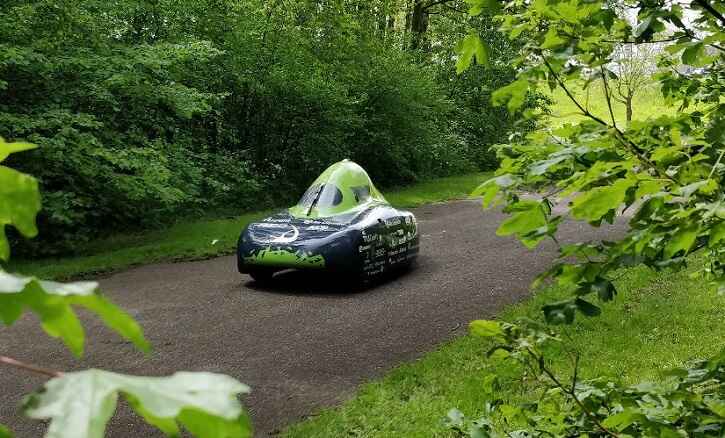Delft University of Technology’s ERXII Aims to Cover 2,000km on Just 1kg of Hydrogen Fuel at Shell’s Eco-Marathon
A student team from Delft University of Technology in the Netherlands has unveiled a highly efficient hydrogen car that could potentially be the most efficient one in the world.
Known as ERXII, this groundbreaking vehicle is projected to travel more than 2,000 kilometers using just 1 kilogram of hydrogen fuel. To put it into perspective, that’s roughly the distance between Amsterdam and Kyiv.
The team’s claim will be put to the test in June at Shell’s Eco-Marathon event in France. Their creation, the Eco-Runner, will compete against student teams from all over Europe to break the world record for the longest distance covered on hydrogen without refueling.
The current record stands at 2,056 kilometers, achieved by a methanol fuel-cell-powered Renault Zoe in 2022. With its focus on aerodynamics and weighing a mere 80 kilograms, the ERXII is designed to maintain a constant speed of 45 kilometers per hour and cover a record-breaking distance within three days.
This is not the first hydrogen-powered car developed by Eco-Runner, as they have been actively involved in creating several innovative models in recent years. The team leader, Julian de Klerk, expressed that this year’s project prioritizes efficiency and reliability, aiming to enhance the record-breaking potential of their vehicle. He also noted the futuristic appearance of the ERXII, which reflects their commitment to pushing the boundaries of automotive design.
Eco-Runner envisions a future where cars are smaller, lighter, and more aerodynamic, placing a strong emphasis on “shared mobility” to facilitate sustainable and efficient transportation. This perspective aligns with the ongoing transition in Europe from fossil-fueled vehicles to more environmentally friendly alternatives.
While electric vehicles (EVs) have received significant attention in the passenger car segment, the Eco-Runner team believes that hydrogen-powered city cars also have a crucial role to play on the roads. According to Eliane van Boxtel, the operations manager, “Electric cars are also part of the solution for sustainable mobility, but the electricity grid is already filling up.
Electrifying the whole world is not an option. Hydrogen and electric cars go hand in hand. There is no one big winner.”
At present, the student team is eagerly preparing for June’s competition, aiming to secure first prize and establish a new record for hydrogen-powered travel. Their efforts exemplify the growing potential of hydrogen as a viable and efficient alternative in the pursuit of sustainable transportation.


